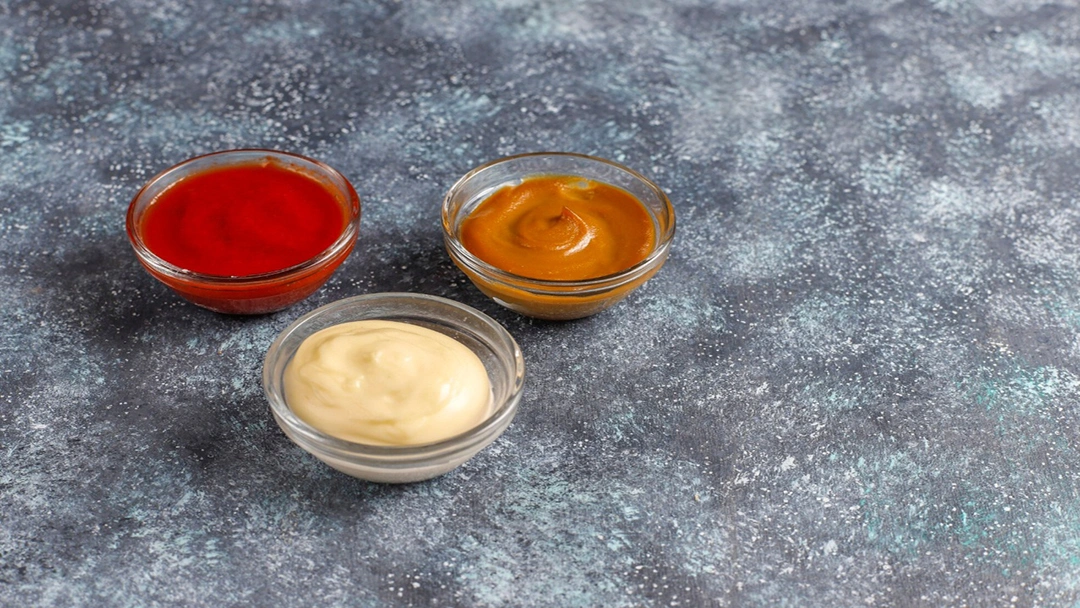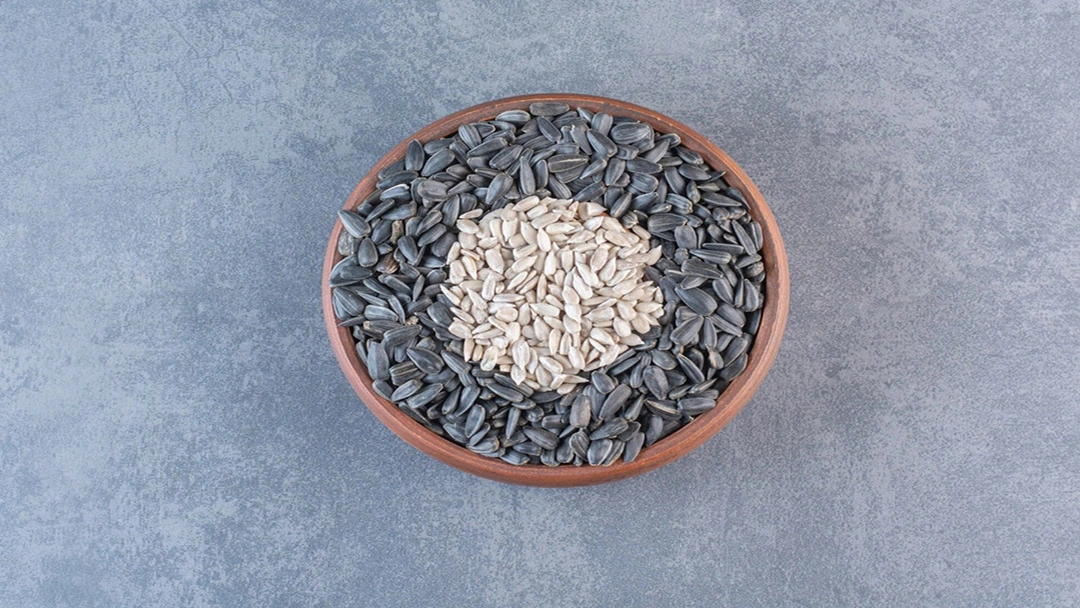The Benefits of Intermittent Fasting 20/4
Recent studies have indicated that fasting for 20 hours a day can have the following benefits [1] [2] [3]:
- Improving Cardiometabolic Health
- Regulating Blood Sugar
- Boosting Rejuvenation
- Improving Weight Loss
- Better Mental Performance
Improving Cardiometabolic Health
Extended fasting lowers insulin and triglyceride levels, improves cholesterol balance, and reduces blood pressure, all of which support heart and metabolic health. It can also increase insulin sensitivity, helping the body use energy more efficiently.
Regulating Blood Sugar
During fasting, the body relies on stored glucose and fat to produce energy. Burning fat instead of sugar decreases blood sugar spikes because energy is released gradually, not suddenly.
It means lower blood sugar fluctuation and stabilized insulin response. Over time, this can reduce the risk of insulin resistance and type 2 diabetes.
Learn More: 48-Hour Fast: Benefits and Results: Is It Safe?
Dr. Joseph Mercola (Natural Health Advocate):
"Intermittent fasting, including the 20-hour fasting window, helps to regulate your hormones, improve insulin sensitivity, and support mitochondrial health."
Boosting Rejuvenation
Fasting activates autophagy, a cellular clean-up process that removes damaged cells and reproduces new ones. This process helps with tissue repair, slows aging, and increases vitality.
Improving Weight Loss
When you avoid food for a longer time, like in an intermittent fasting 20/4, the body shifts from burning glucose to burning fat.
This increases fat oxidation, reduces calorie intake naturally, and helps preserve lean muscle mass while losing weight.
Better Mental Performance
Intermittent fasting can help improve your mental clarity and focus, which is a byproduct of ketone production and fat burning.
Despite these benefits, fasting for 20 hours can come with side effects you need to consider before starting fasting.
[cta-meetings]
The Side Effects of Intermittent Fasting 20/4
Extended fasting for 20 hours can cause the following challenges, especially for beginners:
- Hunger and Cravings
- Malnutrition
- Fatigue and Low Levels of Energy
- Headaches and Lightheadedness
- Irritability and Mood Swings
- Digestive Problems
- Bad Breath
- Sleep Disorders
Hunger and Cravings
A 2018 study on 112 participants divided into two groups based on the amount of calorie intake revealed that the group with 400 or 600 calories consumed on 2 nonconsecutive days each week for 1 year showed higher hunger scores than the group consuming a low-calorie diet with continuous calorie restriction [4].
Another 2019 study trying fasting for 4-21 days showed that hunger symptoms appeared in the early days of fasting, but the body adapts to the new situation after some days [5].
Learn More: The 60-Hour Fast Benefits and Results: Is It Safe?
[cta-meal-plan]
Malnutrition
If you follow the above-mentioned steps to do a 20-hour fast, you may not experience any malnutrition. However, if you fast for long periods without paying attention to providing enough nutrients in the eating windows, you may face malnutrition.
A 2019 study conducted by Grajower and Horne confirmed this point and found that poorly constructed energy-restricted diets can lead to malnutrition or similar negative results [6].
Fatigue and Low Levels of Energy
Different studies conducted by Harvie and Howell (2017) and Finnell et al. (2018) indicated that fatigue and feeling low energy are among the common side effects of intermittent fasting [7] [8].
However, other studies by Nugraha et al. (2020) showed that intermittent fasting can lower fatigue, especially when the body gets used to the fasting situation [9].
Headaches and Lightheadedness
A review by Allaf et al. published in 2021 revealed that in 18 different studies on people doing intermittent fasting, mild headache was among the side effects [10].
According to a 2010 study by Torelli and Manzoni, fasting headaches cause pain in the frontal area of the brain and are mainly caused by low blood sugar and caffeine withdrawal [11].
Irritability and Mood Swings
Based on a study conducted by Mongraw-Chaffin in 2019, mood swings and irritability can happen during intermittent fasting due to decreased levels of blood sugar [12].
Another study by Tinsley et al. (2019) supports these findings, indicating that hypoglycemia during fasting can create feelings of irritability, anxiety, and poor concentration [13].
A 2016 study by Watkins and Serpell conducted on 52 women showed that the participants were more irritable after an 18-hour fasting period than a non-fasting period [14].
Despite irritability, the participants of this study experienced a higher sense of achievement, pride, and self-control after the fasting period compared to the start of the study.
Learn More: The 96-Hour Fast Benefits and Results: Is It Safe?
A 20-Hour Fast Restricts Calories
Studies published in the National Institutes of Health (NIH) suggests that intermittent fasting, including the 20-hour fast, can lead to a significant reduction in daily caloric intake, promoting weight loss. Also, studies indicate that fasting can reduce caloric intake by 20-30% without deliberate calorie counting.
Digestive Problems
Based on different studies by de Toledo et al. (2019) and Cui et al. (2020), some individuals may experience constipation, diarrhea, nausea, and bloating while doing intermittent fasting [15] [16].
Tinsley et al. (2019) have found that decreasing food consumption, changes in eating habits, and the body’s effort to adapt to the new situation may cause these digestive issues [17].
Bad Breath
It is no secret that avoiding food for long hours, like fasting for 20 hours, can cause bad breath. This point has also been confirmed by different studies conducted by Gonçalves et al. (2019), Mogilnicka et al. (2020), and Bovey et al. (2018).
According to a 2015 study by Anderson, bad breath caused by a 20-hour fast happens because our body starts to burn fat and produce Acetone, which is a by-product of fat metabolism.
Another study by Kapoor et al. (2016) shows that dehydration, which can happen during a 20-hour fast, can also cause bad breath.
Sleep Disorders
Phillips (2019) has researched the effect of intermittent fasting on sleep and found that some individuals may experience sleep disorders like insomnia or oversleepiness after fasting.
Another 2019 study by de Toledo et al. indicated that 15% of 1422 participants experienced sleep disorders because of intermittent fasting.
However, other studies conducted by Kalam et al. (2021) and Cienfuegos et al. (2021) reported there was no significant relation between intermittent fasting and sleep disorders.
To reach the health benefits and avoid or decrease side effects, try intermittent fasting 20/4 using the following steps.
[cta-gocarnivore-plans]
How to Do Intermittent Fasting 20/4 in a Healthy Way?
- Choose Your Fasting Window: Choose your 4-hour eating period. For example, you can eat between 2:00 PM and 6:00 PM each day.
- Start Gradually: If it is your first time trying fasting, start with a 12- or 16-hour fast and gradually increase the fasting period in the coming days to reach 20 hours.
- Drink Enough Water: It’s necessary to stay hydrated because dehydration can cause fatigue, headaches, nausea, etc. You can also drink plain tea or black coffee (without sugar or cream) to hydrate, curb hunger, and even provide some energy.
- Plan Your Meals: Before starting fasting, plan your meals to avoid wasting time in your 4-hour eating period. Use whole foods from different sources to gain various nutrients.
- Break the Fast Mindfully: Avoid large meals after the fasting period and start with a small, light meal to avoid pressuring your digestive system.
- Check Your Body Changes: Pay attention to your body's signals, especially about hunger and fullness. Eat enough and avoid overeating or undereating.
- Keep a Schedule: Fix the 4-hour eating period and start the fasting period at a specific time. Sticking to a fixed schedule helps your body adapt sooner.
- Monitor Your Progress: Stay alert to your body’s reactions and changes during the fasting period to see if you need to improve anything.
- Be Patient and Flexible: Your body needs some time to adapt to the fasting situation. Be patient and modify your plan and schedule to meet your needs.
- Talk to a Doctor: Consult a healthcare provider if you have any medical conditions or if you are unsure whether fasting is suitable for you.
Although most of your intermittent fasting 20/4 period is spent fasting, you need to eat.
If you want to reach the best results, you should note that eating enough healthy and nutritious foods during the 4-hour eating period is as important as avoiding caloric intake during the 20-hour fasting period.
Learn More: Carnivore Diet Fasting: Types, Food List & Meal Plan
Ori Hofmekler (Author of "The Warrior Diet"):
"Our ancestors ate this way for thousands of years. Fasting during the day and feasting at night is the most natural and effective way to achieve optimal health and fitness."
What Can I Eat on an Intermittent Fasting 20/4?
During fasting, no calories are allowed. But out of the fasting period, in the 4-hour eating window, you should break your fast gradually with small and easy-to-digest meals to let your digestive system adapt. You can consume:
- Bone Broth: It contains minerals, collagen, and amino acids, helping gut health.
- Fruits: Watermelon, cantaloupe, or berries help with proper hydration and gently raise blood glucose levels.
- Vegetables: Cooked or steamed vegetables, such as spinach, broccoli, or carrots, are good as they contain vitamins and minerals and are easy to digest.
- Proteins: Lean proteins like grilled chicken, turkey, or fish provide essential amino acids for muscles.
- Healthy Fats: Avocados, nuts, olive oil, and animal fats provide healthy fats needed for satiety and nutrient absorption.
- Yoghurt: Plain, unsweetened yogurt with probiotics is good for gut health and digestion.
- Complex Carbohydrates: Whole grains like quinoa, brown rice, or whole-grain bread are good sources of sustained energy.
- Eggs
- Smoothies
- Water
Learn More: What Is Fat Fasting?
What Can I Drink on a 20-Hour Fast?
Zero-calorie drinks, including:
- Water,
- Plain tea,
- Black coffee, and
- Herbal tea.
[cta-meetings]
Foods to Avoid After a 20:4 Intermittent Fasting
The main thing you need to avoid after a 20-hour fast is a heavy, sugary meal, including:
- Highly Processed Foods: Fast food, chips, cookies, and sugary snacks rapidly increase blood sugar and can cause digestive issues.
- Fried Foods: They are usually greasy, heavy, and not so easy to digest.
- High-Sugar Foods and Beverages: Foods and drinks like soda, candies, and pastries increase blood sugar levels too fast.
- Alcohol: Consuming alcohol right after a 20-hour fast on an empty stomach can cause dehydration and digestive problems.
- Spicy Foods: They can irritate the digestive system.
- Too Much Dairy: It can disrupt your gut.
- Too Much Caffeine: It can irritate the stomach and negatively impact digestion.
- Artificial Sweeteners: They can trigger an insulin response or increase cravings, which disrupts metabolism. They may also confuse the body’s hunger and energy signals, reducing the benefits of the fast.
- High-Fat Meals: They are heavy on the stomach and not suitable for breaking a fast.
You can try fasting once or twice a week. But some consider 20-hour fasting for a whole week or month to reach results faster. To see if they work, let’s check the one-week and one-month results.
However, it may not be suitable for everyone, and you should talk to your doctor before trying intermittent fasting 20/4 for a whole week or month.
Learn More: Ketovore Diet: Pros and Cons, Food List, and 7-Day Meal Plan
A 20-Hour Fast Improves Diabetes
A study published in the journal Cell Metabolism found that intermittent fasting improved insulin sensitivity, reducing the risk of type 2 diabetes by enhancing the body's response to insulin.
20-Hour Fast Weight Loss Results
The findings of a 2020 study conducted by Cienfuegos et al., researchers of the University of Illinois, Chicago, indicated that 18-hour and 20-hour fasting were both effective for weight loss by decreasing the participants’ eating portions without counting calories [18].
This study revealed that after 10 weeks into the research, both groups that fasted for 18 and 20 hours lost about 3% of their starting weight.
Findings of recent research show that no matter which fasting period you choose, lower calorie intake caused by fasting simply helps weight loss.
Also, the participants of this study experienced improvements in insulin resistance and oxidative stress by the end of the research, implying that 20-hour fasting can positively affect overall metabolic health and even resistance to chronic disease.
We also know that various factors affect the weight loss results of a 20-hour fast in each individual. Factors such as metabolism, activity level, starting weight, and overall dietary habits are among the most important ones.
Additionally, the rate of weight loss may decrease over time as the body adapts to the fasting schedule.
Having said that, the general results of fasting for 20 hours for one week and one month can be as follows.
Learn More: High Protein Lasagna Recipe with Cottage Cheese for Keto
[cta-meal-plan]
One Week Results
Individual factors aside, weight loss after one week of 20-hour fasting can be around 1 to 3 pounds (0.5 to 1.4 kilograms) for most individuals.
Some may experience more significant initial weight loss because of a reduction in water weight and stored glycogen in the muscles and liver.
One Month Results
After one month of 20-hour fasting, you may witness more significant results than in one week. On average, you may lose about 4 to 10 pounds (1.8 to 4.5 kilograms) in a month.
Also, if you need help starting fasting, you can simply use this 7-Day Ultimate Fasting Course For Fat Loss.
A 20-Hour Fast Improves Health
Studies published in NHLBI shows that fasting can help regulate hormones such as insulin, leptin, and ghrelin, which play crucial roles in hunger, metabolism, and overall energy balance.
Is Fasting for 20 Hours Safe?
Intermittent fasting, specifically the 20-hour fast, is generally safe for people without special health concerns. However, its biggest risk is nutrient deficiencies. That is because your eating time is too short, and it can be challenging to eat a variety of foods in only four hours.
Also, it may not be a good choice for everyone. Although all people who’d like to try fasting need to consult a healthcare professional first, children, the elderly, pregnant or breastfeeding women, people with eating disorders, and those with certain health problems need more caution.
[cta-gocarnivore-plans]
Is a 20-Hour Fast Good for Weight Loss?
Different clinical studies have found that alternate-day intermittent fasting (IMF) can result in significant weight loss in obese individuals.
Also, an animal study conducted by Juliet Guuthardt et al. in 2015 indicated that intermittent fasting could positively affect fat loss and help maintain lean mass, increase hypothalamic norepinephrine content, and increase neuropeptide Y gene expression in diet-induced obese male mice.
Based on Guuthardt’s study, weight loss resulting from 20-hour fasting is actually caused by increased beta-oxidation or fat-burning. After some hours of fasting, our body starts to use its fat reserves to produce energy.
In other words, in this situation of low insulin and high norepinephrine levels, the body begins to identify and select excess fat stores for fuel.
A 2005 study conducted by Heilbronn et al. indicated that a 20-hour fast has helped some individuals become leaner and more muscular at the same time.
Another study by Mansell, Fellows, and Macdonald in 1990 indicated that fasting can increase metabolic rate by about 14%.
Hatori et al. conducted a study in 2012 and found that intermittent fasting could boost metabolism and fight the obesity epidemic in the US.
Additionally, individual experiences show high levels of satisfaction in intermittent 20-hour fasting. You can start one under the supervision of experts using this 7-Day Ultimate Fasting Course For Fat Loss.
[cta-meetings]
How Much Weight Can You Lose on a 20/4 Fast?
It is obvious that the amount of weight lost after a 20/4 fast depends on various factors, from health status and body composition to diet, calorie intake, and many more.
However, some individuals may lose 500 to 1000 calories per day and lose about 1 to 2 pounds per week. Remember that it’s a rough number, and each individual’s results may vary.
Who Should Avoid Doing 20-H Fasting?
Generally, everyone can try fasting, but some groups seriously need to consult a healthcare professional before doing a 20-hour fast because they are in special situations. These groups include:
- Pregnant and Breastfeeding Women
- Children and Adolescents
- Those with Eating Disorders
- Those with Underlying Health Conditions
- Those with a History of Nutrient Deficiencies
- Underweight Individuals
- Those on Specific Medications
- Highly Active Individuals
Learn More: Pemmican Recipe: How to Make Pemmican for Keto and Carnivore
A 20-Hour Fast Is Flexible
A 20-hour fast involves eating one meal within a 4-hour window, allowing flexibility in meal timing to fit various lifestyles and preferences (National Institutes of Health (NIH)).
Summary
Intermittent fasting 20/7 can be good for some individuals looking for fast fat melt, weight loss, and those with specific health concerns in need of quick changes.
However, to decide if intermittent fasting, especially a 20-hour one, is suitable for you or to determine the weekly and monthly schedule, it is wise to consult a healthcare professional or dietitian first to avoid possible health problems.
FAQ
Here are answers to the most frequently asked questions about intermittent fasting 20/4.
Is a 20-Hour Fast Better Than 16 Hours?
Some say fasting longer is better as insulin levels get lower as time passes, yet some studies show that 16-, 18-, and 20-hour fasting periods are equally effective. Anyhow, your body may respond better to one of these methods.
Is a 20-Hour Fast Better Than an 18-Hour Fast?
According to recent studies, if you consider losing weight, an 18-hour fast can be as effective as a 20-hour fast.
Can I Take Vitamins When Fasting?
Taking vitamins when fasting depends on your body's needs and is generally accepted. But taking some vitamins like gummy ones or those containing calories can break your fast. How to Get Vitamin C on a Carnivore Diet? What Meats to Eat?































